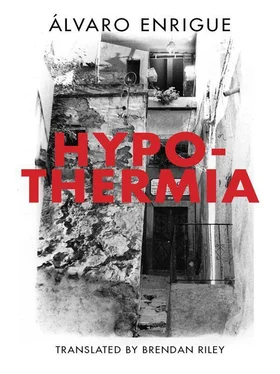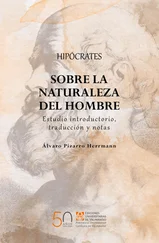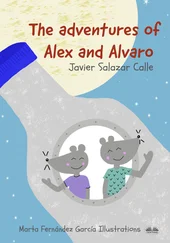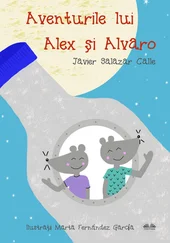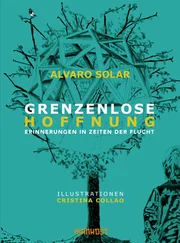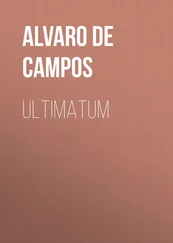Before we even reached our destination, though, the sky began to roil and erupt. The storm hit with such violence that we heard it before anything else: we were by now very close to the landing field. When the lightning flashes and exploding thunder announced an imminent cloudburst, we stopped beneath one of the freeway bridges with another group of cyclists and some runners who’d also been counting on those imperturbable, late-season cloudbanks. Cathy took our picnic blanket out of her backpack while I removed sodas, olives, and potato chips from the cooler in my basket. We spread out our little sheltered camp and from there we watched the river churning with the rainfall in the distance until the storm front reached the bridge.
Although we got a bit chilly — rain always carries an icy presence that clings to your shirt with all the tenacity of human ashes — we entertained ourselves by calculating how far away the lightning was striking: reason is the only human defense against our primal fear of the elements. At one point the rain was so heavy that we couldn’t even see the river, which was barely ten yards away from our picnic blanket.
The storm passed as nimbly as it arrived. We had finished our olives and were still nibbling on potato chips when a small but promising ray of sun broke through the clouds.
Children — like Mexico, like ashes — are sticky: for parents, some ridiculously simple tasks, like getting into the car or choosing a movie at the video store, become endless, herculean tasks. The runners and other cyclists sheltering beneath the bridge had long ago returned to the path when we felt ready to resume riding with all our gear, once more in strict formation.
We had only gone a few hundred yards when I became aware that my bicycle and I had penetrated into a different reality, as though we were at the center of a cone of silence. I looked ahead at Cathy and the kids and saw their faces distorted by a spasm of fear: whatever was going on, it was happening only to me. Looking down, I saw a glowworm devouring my handlebars in slow motion. As it touched my hands, they turned the very shade of blue they’ll become when I’m dead. My wedding ring, on my right hand, flared molten green. In spite of the intense pain produced by the burning ring, I couldn’t let go of my bicycle: my body was trapped in a surging vibration, as if a magnet was drawing me up by the hair to some paradise I don’t deserve. I’m dying, I thought. Cathy and the children were shouting something at me — who knows what — from the world of sound they still inhabited. In return I gave them a smile more resigned than sad.
Then thunder shattered the silence. It wasn’t the usual deafening sound as it might be heard by ears outside my electric womb, but a soft, precise crack, like a handclap. Still, I was able to see the two trees nearest the path get blown to pieces before collapsing in clouds of smoke. Blackened and burning from the lightning, their limbs fell around me in a perfect circle. Dismounting from my bicycle I sensed, for the first time in my life, the astonishing firmness and solidity of the ground. I touched one of the branches and felt its embers burn my fingertips. Hoisting my bike to my shoulder, I removed the leaves, bark, and branches, and checked to make sure it was all in one piece. Then, despite having been just struck by lightning, I proposed that we keep riding toward the airport.
Once we reached the meadow we were disappointed to see that the stormy weather had forced a change in the runway patterns. Now we couldn’t watch the planes landing. Instead, as we lay on our backs in the wet grass, we could only see their departures, which are always anticlimactic.
. . gentle fatherland, pantry and aviary.
RAMÓN LÓPEZ VELARDE
It was Sunday and Jordan Marcus was peering out the window of his fourth floor apartment at the corner of 15th and Fuller. The telephone rang. He was wearing a T-shirt, elbows resting on the windowsill, hoping for a breeze off the Potomac that wasn’t going to blow till autumn. Methodically scanning the row of windows in the building across the street, he checked on his neighbors as though they were birds in cages. Over the years, with patient effort, he had been able to glimpse some fabulous, indeed lubricious, scenes within the shadows of those apartments. On the fourth floor, the same little old insomniac lady who was always there stood with her face pointed at the rising sun; her burned-out eyes, long-covered with cataracts, staring opaquely from behind Coke-bottle lenses. Lower down, to the left, a fat man dunked bread into his coffee, tits slipping out from behind his tank top. The other apartments were still dark or had their blinds lowered.
A woman’s voice reached his ears, distorted by the grating noise of the fan blowing hot air onto the back of his neck. It’s for you, she said. What. The telephone. What telephone. The phone, they’re calling you about some emergency. Marcus got up from his chair slowly, taking advantage of the angle afforded by standing to steal one last look at the windows across the way, then turned back into the apartment and walked down the sky-blue hallway. He’d painted it that color during one of the ferocious bouts of perfectionism that periodically drove him to lead a more dignified life. He didn’t bother getting the phone in the kitchen where it was waiting off the hook: the receiver was so greasy that it always slipped from his fingers in the muggy heat. In the living room — painted green in an earlier outburst of energy — he plopped onto the couch with a sigh, as he did every night to watch TV after the last curtain was drawn in the building across the street. Using the hem of his shirt to wipe the sweat off his face, he picked up the receiver. Hello? The answer was drowned out by the sound of bacon sizzling in a frying pan. Just a moment please, he said. Covering the mouthpiece, he shouted at the woman to hang up, that he’d picked up. He waited for the line to quiet down to ask what the matter was. A polite voice with an Hispanic accent apologized for calling him so early, but the electricity was off and needed to be repaired before eight A.M. He’d been recommended, the caller said, because he lived near the restaurant, and they needed power before the first customers showed up. Which restaurant? Marcus asked. Guadalupe’s, at 13th and Harvard. They told me it’s not too far from your house. Only three blocks, Marcus answered. He excused himself for a moment to check his work orders for the day, then just sat for a moment on the couch, the receiver muffled against his belly. He scratched his scraggly beard with his free hand and thought about his captive birds in the building across the street. When he figured that a reasonable amount of time had passed, he answered: I’m gonna have to cancel a job I’ve got at eight-thirty.
In the kitchen, his woman was at the stove frying eggs. I have to go out, Marcus told her, right now, and he poured himself some coffee. It’s an emergency. She turned away from the stove to stare at him, then set down the spatula on the stovetop, and put her hands in the pockets of her pink terrycloth robe: in the four or five months they had been together, she’d never seen him in a hurry.
He ate his breakfast standing up, then clattered the plates into the dishwasher. Going to his bedroom he took his coveralls out of a closet with missing doors. His clothes smelled like mildew. He picked up yesterday’s socks from the floor and sat down by the window to get ready. All the while, slipping on one sock, then another, and then the coveralls, he kept looking out the window for some freshly opened curtain. He put his boots on, carefully snugging the laces at each turn. He was working on the second boot when something moved in the building across the street. Dickey bird, he thought, and froze, keeping his eyes riveted to the spot until he felt sure the blind wasn’t going to go up after all. Back in the hallway he paused to take his toolbox out of the linen closet where it was buried between packages wrapped in polyethylene bags. He was about to leave without saying good-bye when the woman grasped his arm. Well? she asked. What? What’s the big hurry? It’s an emergency. And since when do you accept emergency jobs? Don’t I bring home enough money for you? I’ve never been inside Guadalupe’s he said, slamming the door.
Читать дальше
